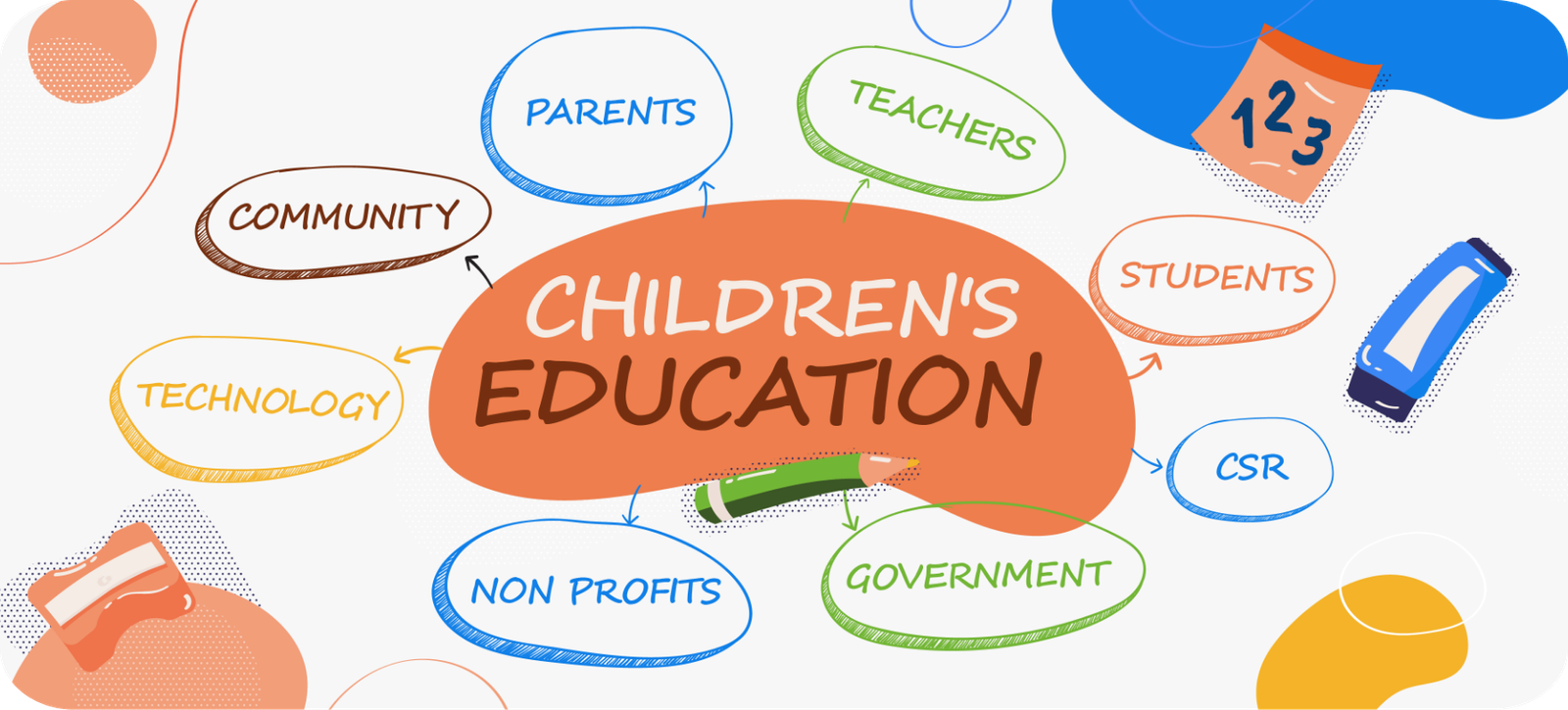
High-quality education is vital for the future, but India’s public expenditure is below the recommended GDP. Increasing investment to this level is crucial for a high-quality, equitable education system.
- Universal quality early childhood care and education
- Foundational literacy and numeracy
- Extensive use of technology and online education
Focusing on these areas will build a strong educational foundation for national progress.
CSR programs are pivotal in addressing the educational disparities faced by communities, where challenges like poverty, inadequate health infrastructure, and cultural barriers hinder access to quality Education. CSR initiatives play a transformative role by providing essential funding, resources, and support to improve ECCE outcomes.
By leveraging technology and strategic partnerships, CSR can bridge urban-rural education divides, empower marginalised children, particularly girls, and equip them with the skills needed to break the cycle of poverty and contribute meaningfully to society. By investing in ECCE through CSR, companies not only fulfil their social obligations but also foster sustainable development and enhance educational opportunities for future generations in India.

Digital transformation in education through CSR is crucial where basic infrastructure is lacking. Corporates, governments, and NGOs are leveraging technology to enhance education in India. Initiatives include integrating technology in classrooms, and improving internet connectivity, significantly boosting educational quality and digital literacy. This transformation fosters student engagement, improves attendance, and supports holistic development aligned with SDG 4 on quality education. By promoting digital literacy and extracurricular activities, CSR interventions prepare students for future challenges, contributing to broader societal goals of poverty reduction, gender equality, and health improvement.

